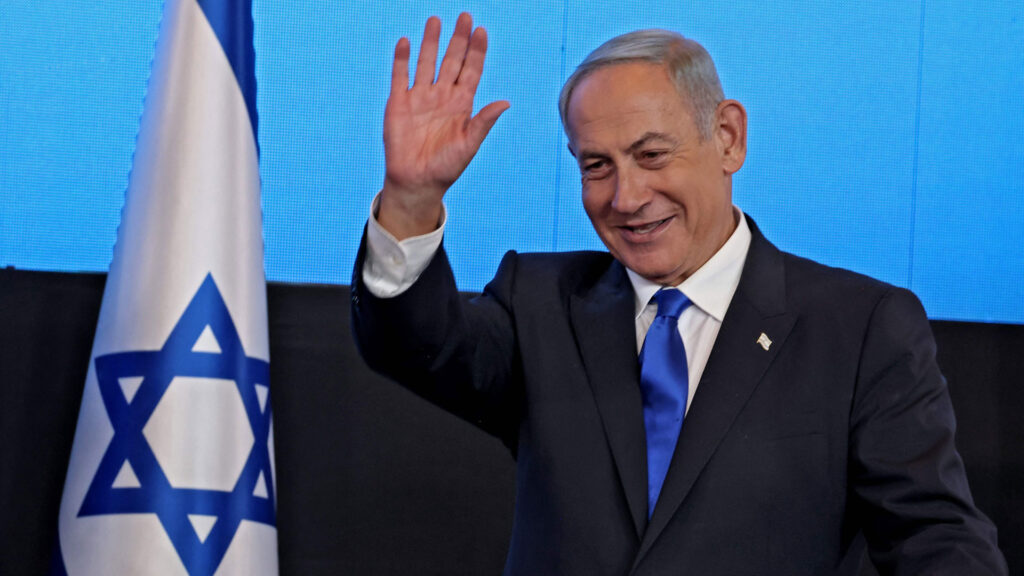The Prime Minister of Israel, Benjamin Netanyahu, is set to meet the President of the United States, Donald Trump, at the White House on Monday.
The Ambassador of Israel to the U.S., Yechiel Leiter, told the media, “This meeting comes at a critical moment on many key issues: the efforts to return our hostages being held by Hamas, the instability in Syria, and the threats posed by Iranian proxies.”

He added that “the recent implementation of tariff policy will also be discussed. Just as Prime Minister Netanyahu was the first world leader to visit President Trump in his second term in the White House, he is now once again the first leader to meet with the president with regard to deepening economic ties and putting trade relations in order.”
On Monday, President Donald Trump posted on Truth Social, and part of it said, “Oil prices are down, interest rates are down (the slow-moving Fed should cut rates!), food prices are down, there is NO INFLATION, and the long-time-abused USA is bringing in billions of dollars a week from the abusing countries on tariffs that are already in place.”
A 17% tariff on goods imported from Israel as part of Wednesday’s “Liberation Day” declaration. This comprises the 10% baseline tariff on all countries that went into force on April 5 and an additional 7% levy set to take place on April 9.
A value-creation expert at the Holon Institute of Technology in Israel, Alex Coman, told the media that “the fear is that these tariffs will hurt exports of diamonds as well as high-tech or defense systems like drones. If our income were to be reduced as a result, this would be a problem.”
“These tariffs came as a surprise. Prior to this decision, there were very few imposed; many products did not have them, and Israeli Finance Minister Bezalel Smotrich eliminated those that existed,” adding, “As such, I am very optimistic that these tariffs will be reduced.”

Netanyahu was surprised by Trump’s action and began attempting to negotiate a 10% tariff reduction. Also, Smotrich issued an order to eliminate the final Israeli duties on U.S. imports of mostly agricultural goods.
About 98% of goods have been exchanged tax-free since 1985, when Washington and Jerusalem signed the United States’ first free trade pact.
President Trump said in another Truth Social post on Monday that “The United States has a chance to do something that should have been done DECADES AGO. Don’t be weak! Don’t be stupid! Don’t be a PANICAN (a new party based on weak and stupid people!). Be strong, courageous, and patient, and GREATNESS will be the result!”
According to the Prime Minister’s Office in Jerusalem, Netanyahu and Trump will also talk about the Iranian nuclear threat, the war against Hamas in the Gaza Strip, the ongoing fight to thwart the International Criminal Court’s arrest warrants for Israeli leaders, Turkey’s military intervention on behalf of the new al-Qaeda-linked leadership in Syria, and efforts to free the 59 hostages still held during Hamas’ terrorist attack on October 7, 2023.
A senior diplomatic correspondent for the Israel Hayom daily newspaper, Ariel Kahana, said, “The top issue to be discussed will be Iran because it seems [nuclear] negotiations might begin. I believe Netanyahu will want to caution Trump ahead of time.”
“We saw the report about the U.S. sending a second THAAD anti-missile battery to Israel on top of equipment America is already sending, and they will want to coordinate all of that together.”
Kahana added, “They will also talk about the war in Gaza, the hostages and the tariffs, which Netanyahu will try to at least lower. With regards to Turkey, I assume Netanyahu will ask Trump to put some limits on [President Recep Tayyip] Erdogan. It seems that both Israel and Turkey are trying to expand their presence or activities in Syria, and it might reach a point that could lead to a direct military conflict.”
Prime Minister Netanyahu told reporters about the importance of his visit to meet with President Trump at the White House on Monday upon leaving Hungary on Sunday.
He said, “I can tell you that I am the first international leader, the first foreign leader, who will meet with President Trump on this issue, which is so important to Israel’s economy. There is a very long line of leaders who want to do the same regarding their own economies. I believe this reflects the special personal relationship and the special bond between the United States and Israel, which is so vital at this time.”















